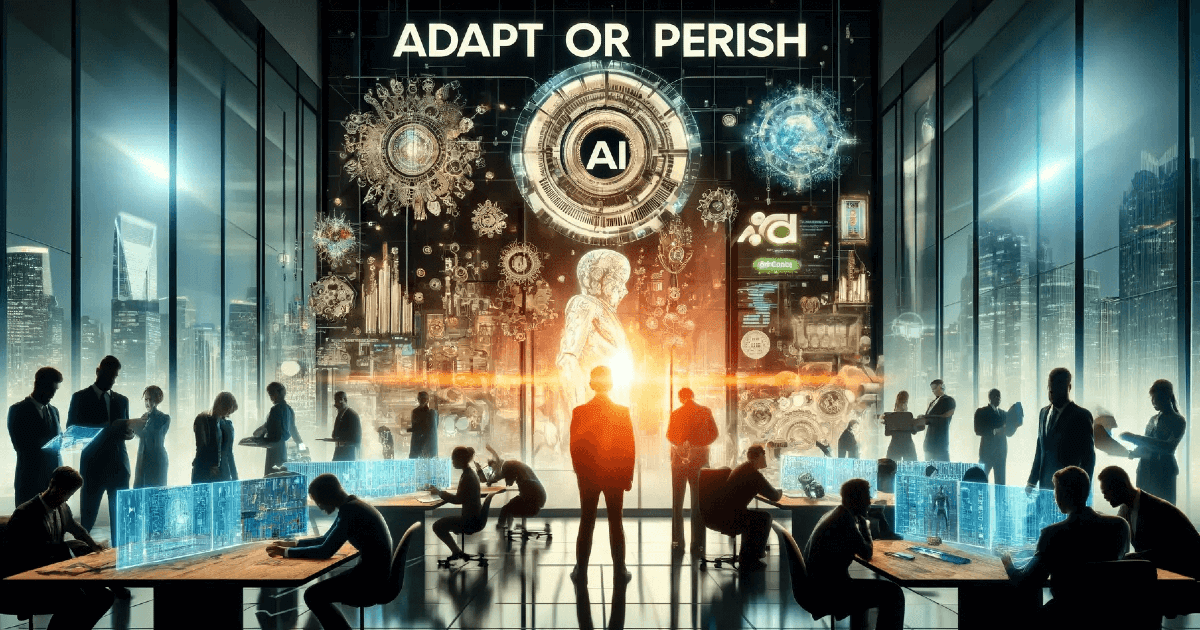As you read this article, your competitors may already be redefining their limits of efficiency and creativity. We're not talking about the distant future, but the present. Generative artificial intelligence is already rewriting the rules of the game, and ignoring this reality is a strategic risk that could cost your business dearly.
AI is not the future, it is now:
Forget optimistic predictions about the potential of AI. The current figures are impressive enough. OpenAI, the creator of ChatGPT, reached $1.3 billion in revenue in 2023, up 150% on the previous year. NVIDIA, maker of essential chips for AI, saw its shares soar 232% in 2023, driven by the growing demand for computing power for AI. Microsoft, which integrated generative AI into its Bing search engine, saw an increase of 1 billion monthly active users. These are just a few examples of the real impact of AI on the market today.
The moment calls for attitude
SAP, the business software giant, is not messing around. Several articles, such as the one published on The Information website, reveal the company's radical stance: adapt to generative AI or leave. Employees who refuse to integrate the technology into their daily lives are being encouraged to look for new opportunities. The message is clear: AI is not a "differentiator", but the new basis for productivity and competitiveness.
And SAP is not alone. Other giants, such as Amazon and Google, are also investing massively in integrating AI into their operations. The difference is that, while these companies are promoting an internal revolution, many others are still in their infancy when it comes to adopting AI, adopting a slow and gradual stance, a luxury that the market no longer allows.
The bill that doesn't close for those who ignore AI:
Let's talk numbers. McKinsey estimates that generative AI can increase productivity by up to 60-70%. Considering a conservative scenario, with an increase in productivity of just 5 hours per day per employee, in a company with 100 employees, with average salaries of R$10,000.00, the annual gain would be R$13,200,000.00.
McKinsey scenario (5 hours saved per day):
- Annual cost of the AI platform (R$100/month per employee): R$ 120.000,00
- Time saved per employee (5 hours/day): 100 hours/month
- Total cost of the hour worked (annual salary / hours worked in the year): R$ 132,00
- Annual savings per employee: R$ 13,200.00
- Total annual savings for the company: R$ 1,320,000.00
- ROI: 1100%
Pessimistic Scenario (1 hour saved per day):
- Annual savings per employee: R$ 2,640.00
- Total annual savings for the company: R$ 264,000.00
- ROI: 220%
Even in a pessimistic scenario, with only 1 hour saved per day, the return on investment (ROI) is still impressive: 220%.
The conclusion is simple:
Inertia towards generative AI is not just a strategic mistake, it's a shot in the foot. Companies that hesitate to embrace this technological revolution are putting themselves at an untenable competitive disadvantage. The age of AI has already begun, and the future belongs to those who dare to lead this transformation.
